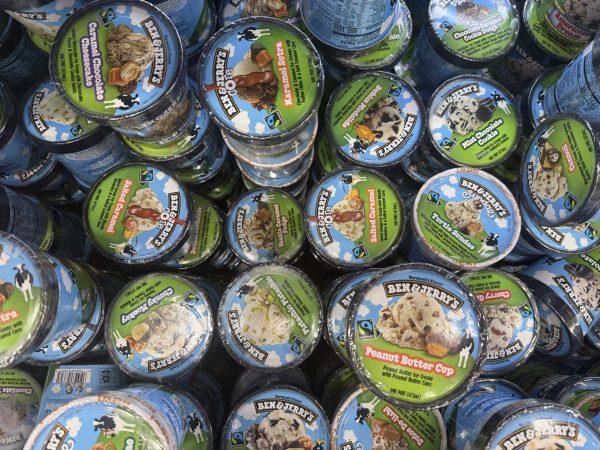Minimizing Spread of Virus Means Self-Sacrifice and Accountability
If you were to ask me three weeks ago if the coronavirus preparations were overboard, I might have agreed and said something along the lines of “people just need to wash their hands.”
If you were to ask me the same question three weeks ago knowing what I do now, I would have wished that we had started sooner.
Two days after the first case was confirmed in New York City on March 1, I went to the Walgreens on Fordham Road to get a bottle of hand sanitizer and Clorox wipes. Unsurprisingly, they were completely sold out. When I checked Amazon, Purell was selling for upwards of $100.
These were the first items to go during the crisis. At this point, it was easy to believe we were all invincible from getting this virus. Many people criticized those preparing or, rather, hoarding cleaning supplies in the face of more cases, because at this point the flu was thought to be much more deadly. However, on March 11, Dr. Anthony Fauci, director of the National Institutes of Allergy and Infectious Disease, reported that COVID-19 is currently about 10 times more lethal than the seasonal flu (1% vs. 0.1%).
Fordham University, along with many other schools around the country, began sending students home the week of March 9 with the expectation that we would come back at the end of the month. Because of escalations in community spread, this is no longer possible. For Fordham students, this means we cannot come back for the rest of the semester. Even the day we can move out is unknown, due to New York Governor Andrew Cuomo’s executive order to close businesses and nonprofit institutions indefinitely, effective March 22.
For many, schools closing for 2-3 weeks was the first disruption to daily life. Then toilet paper began selling out. Then the paper towels, bread, pasta, peanut butter, cheese and milk. Stores began limiting the number of such products you could buy. Big events like St. Patrick’s Day celebrations and music festivals like Coachella were canceled or postponed.
Many small businesses and retailers alike began closing in the wake of the spread in the past two weeks, creating a surge in unemployment around the country. In my home state of Ohio, claims went up by 2700% after Gov. Mike DeWine expanded who could receive benefits due to this crisis. Currently, as is the case in New York and California where the pandemic is at a high, Ohio is under orders to stay at home. Essential businesses like pharmacies and grocery stores are open, and restaurants must only deliver or prepare takeout.
When most of us left Fordham two weeks ago, there were not many cases in New York City. On March 10, there were 36, and there were 48 the following day. As of right now, there are 15,168 cases in New York, with 9,564 in New York City. Of this number, 13% have been hospitalized.
What is most troubling about this virus is that you may have it, but you might not be showing symptoms. As a carrier, you may infect someone who is immunocompromised without becoming very sick yourself. Community spread is mostly responsible for the surge in the virus, which is why the president and other government officials alike urge Americans to practice social distancing.
Dr. Amy Acton, director of the Ohio Health Department, said in a press conference on March 12, “We know now, just the fact of community spread says that at least 1%, at the very least 1%, of our population, is carrying this virus in Ohio today.” With a population of 11.7 million, this is more than 100,000. When I returned home, there were about five cases in the state. The first one in my hometown of Cincinnati was a young woman in her 20s coming home from New York to isolate during the virus with her family. With community spread, she unknowingly exposed her family and everyone on her flight home to the virus, as the incubation period is about two weeks.
At this time, everyone plays a crucial role in stopping the spread by simply staying home, whether or not you have symptoms, in order to flatten the curve, or slow and decrease the spread. Videos of spring breakers in Miami went viral, specifically of Brady Sluder: “If I get corona, I get corona. At the end of the day, I’m not going to let it stop me from partying.” Another, Brianna Leeder, said, “It’s really messing up my spring break.” It is frustrating to hear people our age speak this way knowing that if they do not abide by the rules, our health care systems will be overwhelmed even more so than they already are, and they may put someone at risk of dying. The mindset that it does not matter if you are exposed ignores the reality of being a carrier, and it is completely irresponsible.
I understand the frustration with a vacation being canceled, but if it saves lives, I can reconcile missed time at the beach. As sad as I am that I will not be coming back to Fordham for the remainder of the semester, I am happy to do so if it means my family and other families are safe. No one is invincible from this pandemic. In fact, nearly one third of patients being hospitalized are between 20 and 44. Many are recovering, but they still may require a stay in the intensive care unit. Already, hospitals in the U.S. are in a grave shortage of personal protective equipment (PPE) such as masks and are in need of beds and ventilators. If we do not act with caution now, we too may be singing from our windows just like the people in Italy.
As for what we can do during this time, the top priority is to stay at home as much as you possibly can. Wash your hands, stop touching your face, and regularly clean things like your phone. If you go out to the grocery store, try to maintain a safe distance from people and change your clothes when you get home, as they can carry droplets of the infection. Many hospitals are also in need of makeshift masks with the current lack of supplies. The Centers for Disease Control and Prevention recommend using things like cotton shirts, so if you have the resources, consider making cotton face masks and donating them to local hospitals.
This is how we can ensure that we are physically healthy, but the drastic changes that have been imposed upon everyday life pose a risk to our mental health. It’s important to remember what we still have in facing these losses. FaceTime and Skype are not the same as in-person meetings, but in this crisis, they are essential. Stay in contact with your friends and your professors. This is the time to discover new music, binge that Netflix series that’s been sitting in the purgatory of “My List,” and learn that new TikTok dance (because I know you want to). When your family is annoying you, take a walk outside and catch some fresh air. If you’re like the person I overheard at Urban Kitchen and you want to get the virus just so you could catch a break, take a nap! You deserve it.
There is no need to panic, but there is a need to prepare and to stay informed. Local and federal governments are taking these measures to protect you and especially those who may be critically affected. In social distancing, we are coming together to stop this global crisis.
Katie Schulte, FCRH ’22, is a political science major from Cincinnati, Ohio.








































































































































































































